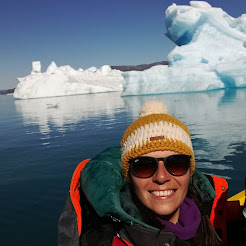Claudia is an astrobiologist working at the Italian Space Agency. She is a biologist by training and focuses on studying fungi resilient to radiation as a proxy for extraterrestrial life.
Claudia holds a Ph.D. in Biological sciences from Tuscia University, which she earned working within the framework of Astrobiology. Currently, she works at the Italian Space Agency, bringing the expertise of biological sciences to space research.
What made you choose the
area of Astrobiology?
Every form of life has
the intrinsic need to explore. Even plants, which are not motile, spread their
seeds through the wind. If humans stay in their comfort zone and don’t leave
Earth to explore, we will miss opportunities, which in this case means vital
knowledge to the survival of our species and, eventually, our planet. Also,
when I was younger, I wanted to be an astronaut, and I was able to align my
passion for biology with space sciences. It’s an inspiring field.
What is the daily life of an astrobiologist working for the space agency?
So, 50% of my time is
for research. And those duties involve finding collaborations, supervising
projects related to the European Space Agency and the International Space
Station, and working on publications. The other part of my time is dedicated to
desk work and outreach.
Being an experimental scientist by training, how did you transition to a partially desk job?
The transition was not
easy because I started by missing the lab work very much. However, the
researchers’ career is like that: we eventually need to progress and leave the
lab.
Passion for space, being
big-picture oriented, teamwork, ability to work in a multidisciplinary workset,
and good communication skills.
Which skills did you have to develop to transit from
molecular biology to astrobiology?
It was not simple
because astrobiology is a multidisciplinary field and you need to learn about
other disciplines, but I overcame that by speaking with specialists to learn
more and never saying no to new learning opportunities.
What will be big
breakthroughs in space science in the next 20 years?
Finding life! I’m
convinced we are very close to finding it.
Curious about the space field? Stay tuned for more... or ask L. in the meantime :)














0 comments